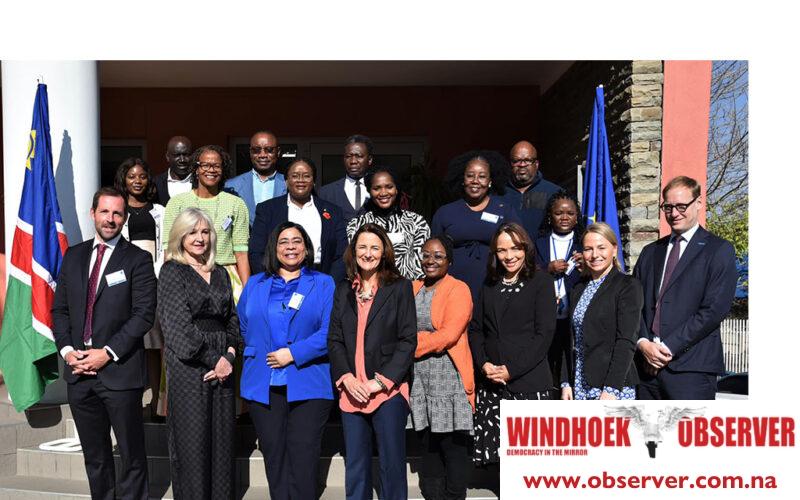Martin Endjala
The European Union Global Facility is assisting Namibia in its efforts to exit the Financial Action Task Force’s (FATF) Grey List through a scoping mission workshop focused on prioritising technical assistance for beneficial ownership compliance.
This initiative follows Namibia’s request for support from the EU AML/CFT Global Facility to enhance its adherence to international standards in anti-money laundering and counter-terrorism financing, specifically in the area of beneficial ownership reporting.
This was announced by Ana Beatriz Martins, the EU Ambassador to Namibia on 12 August.
“The ultimate goal of this workshop is to see Namibia exit the Financial Action Task Force’s Grey List. Also to strengthen NA’s capacity in financial systems, transparency and accountability. EU is not a member of FATF (several MS), but operating in a global market free of AML and CFT is a high political priority,” she said.
Martins said this mission will assess Namibia’s specific needs and challenges, forming the basis for a work proposal tailored specifically to Namibia’s requirements.
Approximately 20 representatives from key Namibian government agencies, such as the Ministry of Justice, Bank of Namibia, Business and Intellectual Property Authority, Master of the High Court, Financial Intelligence Centre, Namibia Financial Institutions Supervisory Authority, Namibia Revenue Agency, Anti-Corruption Commission of Namibia, Central Public Procurement Board, Namibian Police, the Office of the Prosecutor-Genera, and the Institute for Chartered Accountants, attended the workshop.
The collaboration’s goal is to support Namibia in exiting the FATF’s Grey List while strengthening the country’s financial systems, transparency, and accountability.
A technical assistance project, the EU AML/CFT Global Facility, supports partner countries worldwide in strengthening their AML/CFT policies and operational frameworks.
She said the week starts with scoping the specific needs of entities and the structural deficiencies jointly pointed out by the FATF to develop a custom-made work plan.
“The purpose of the scoping mission is to listen to your concerns and needs for specific responses and challenges in order to make our assistance as relevant and effective as possible and based on national priorities,” she said.
She said they want to offer state-of-the-art expertise that allows entities to navigate complex regulatory landscapes.
Concerns about Namibia’s continued effective implementation of compliance with international AML/CFT and Combatting Proliferation Financing (CPF) standards led the FATF Plenary to greylist the country on 23 February and place it under increased monitoring.
During a second mutual evaluation in 2022, the FATF identified deficiencies in Namibia’s technical (law) and effective (implementation) compliance.
This prompted the FATF to provide the country with a twelve-month period for remediation, which concluded in October 2023.
Despite the greylisting, AML/CFT/CFP council chairperson Johannes !Gawaxab said Namibia’s financial system remains sound, stable, and well-capitalised.
Robust due diligence measures will continue to safeguard transactions between Namibia and the global community.
The FIC achieved an unqualified audit opinion for its 2023/24 annual financial report.
Reserves have increased by 128% to N$44.3 million from N$19.3 million in the previous financial year. Total assets nearly doubled, showing a 93% year-on-year increase.
The FIC conducted 49 on-site and 120 off-site compliance assessments, disseminated 357 intelligence reports, and intervened in 34 bank accounts, contributing N$31.1 million to the capital tax raised.
Bryan Eiseb, the director of FIC, said Namibia deposited its first progress report with the FATF on 19 July for consideration.
“The Namibian government has demonstrated a high level of political commitment to addressing the FATF Action Plan, with a comprehensive approach involving all relevant institutions. The first progress report is due in October 2024,” he said.
He said Namibia is still committed to fighting money laundering by collaborating with global industries and private sectors.




